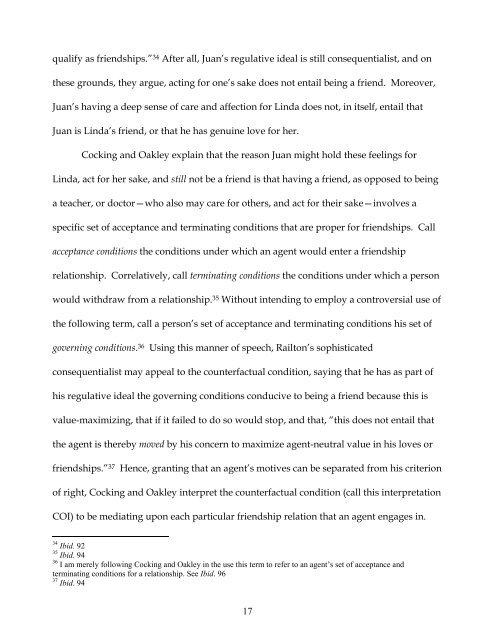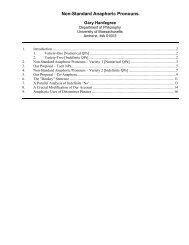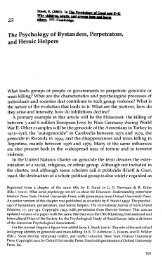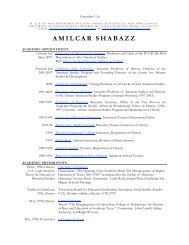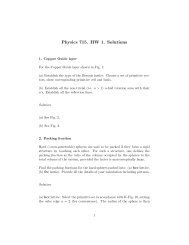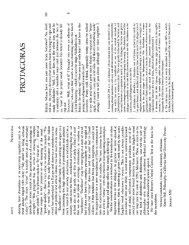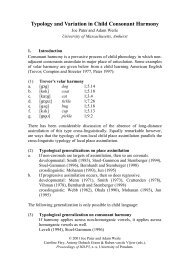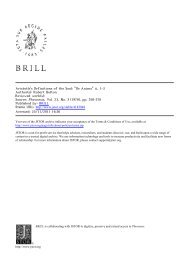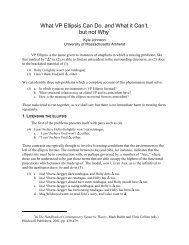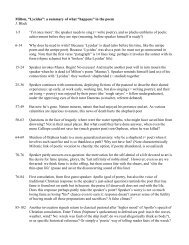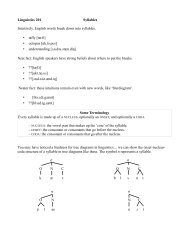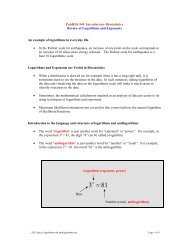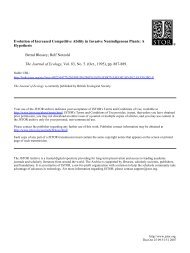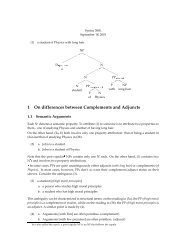1 Confessions of a Moral Schizophrenic* By Jayme Johnson I ...
1 Confessions of a Moral Schizophrenic* By Jayme Johnson I ...
1 Confessions of a Moral Schizophrenic* By Jayme Johnson I ...
Create successful ePaper yourself
Turn your PDF publications into a flip-book with our unique Google optimized e-Paper software.
qualify as friendships.” 34 After all, Juan’s regulative ideal is still consequentialist, and on<br />
these grounds, they argue, acting for one’s sake does not entail being a friend. Moreover,<br />
Juan’s having a deep sense <strong>of</strong> care and affection for Linda does not, in itself, entail that<br />
Juan is Linda’s friend, or that he has genuine love for her.<br />
Cocking and Oakley explain that the reason Juan might hold these feelings for<br />
Linda, act for her sake, and still not be a friend is that having a friend, as opposed to being<br />
a teacher, or doctor—who also may care for others, and act for their sake—involves a<br />
specific set <strong>of</strong> acceptance and terminating conditions that are proper for friendships. Call<br />
acceptance conditions the conditions under which an agent would enter a friendship<br />
relationship. Correlatively, call terminating conditions the conditions under which a person<br />
would withdraw from a relationship. 35 Without intending to employ a controversial use <strong>of</strong><br />
the following term, call a person’s set <strong>of</strong> acceptance and terminating conditions his set <strong>of</strong><br />
governing conditions. 36 Using this manner <strong>of</strong> speech, Railton’s sophisticated<br />
consequentialist may appeal to the counterfactual condition, saying that he has as part <strong>of</strong><br />
his regulative ideal the governing conditions conducive to being a friend because this is<br />
value-maximizing, that if it failed to do so would stop, and that, “this does not entail that<br />
the agent is thereby moved by his concern to maximize agent-neutral value in his loves or<br />
friendships.” 37 Hence, granting that an agent’s motives can be separated from his criterion<br />
<strong>of</strong> right, Cocking and Oakley interpret the counterfactual condition (call this interpretation<br />
COI) to be mediating upon each particular friendship relation that an agent engages in.<br />
34 Ibid. 92<br />
35 Ibid. 94<br />
36 I am merely following Cocking and Oakley in the use this term to refer to an agent’s set <strong>of</strong> acceptance and<br />
terminating conditions for a relationship. See Ibid. 96<br />
37 Ibid. 94<br />
17


